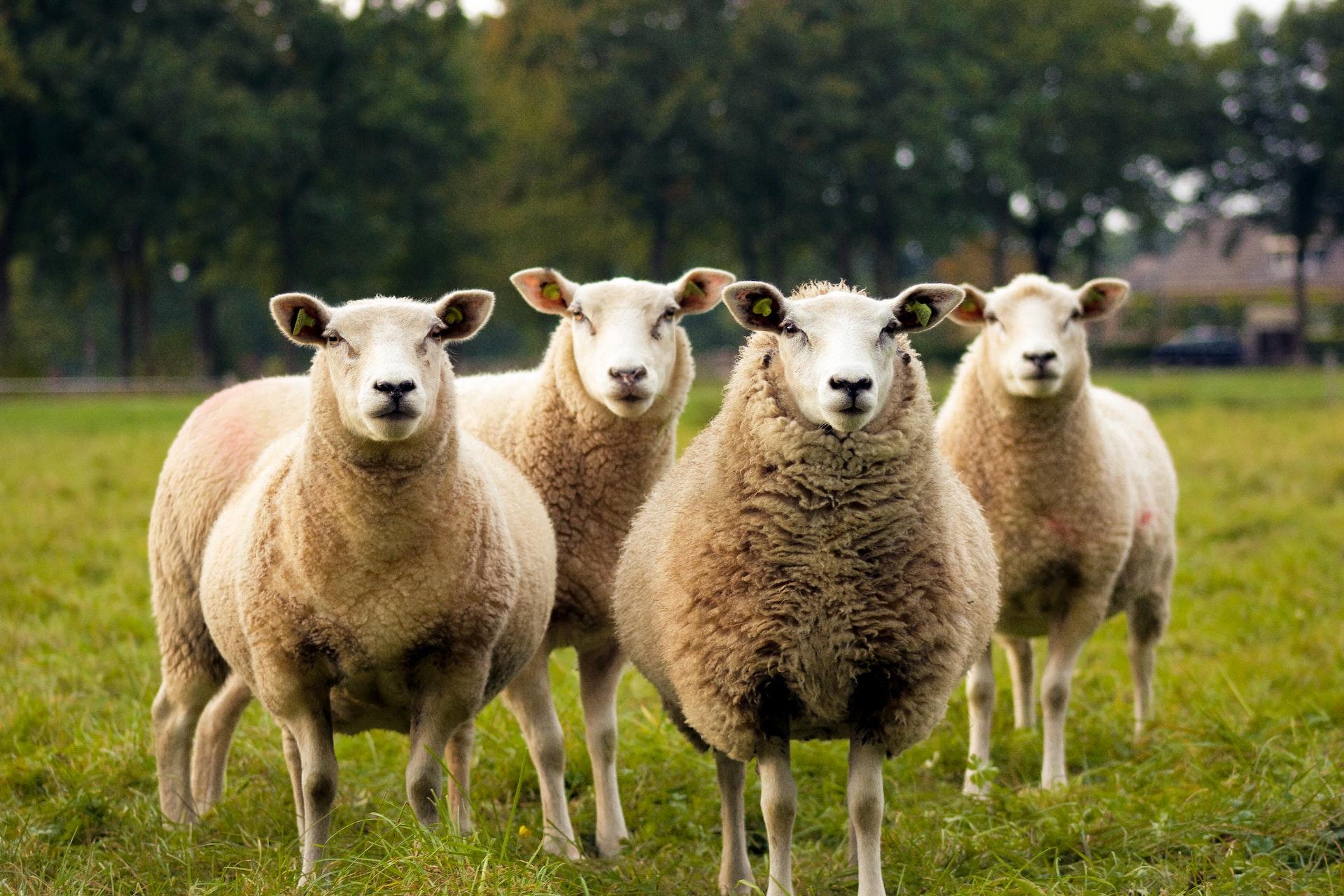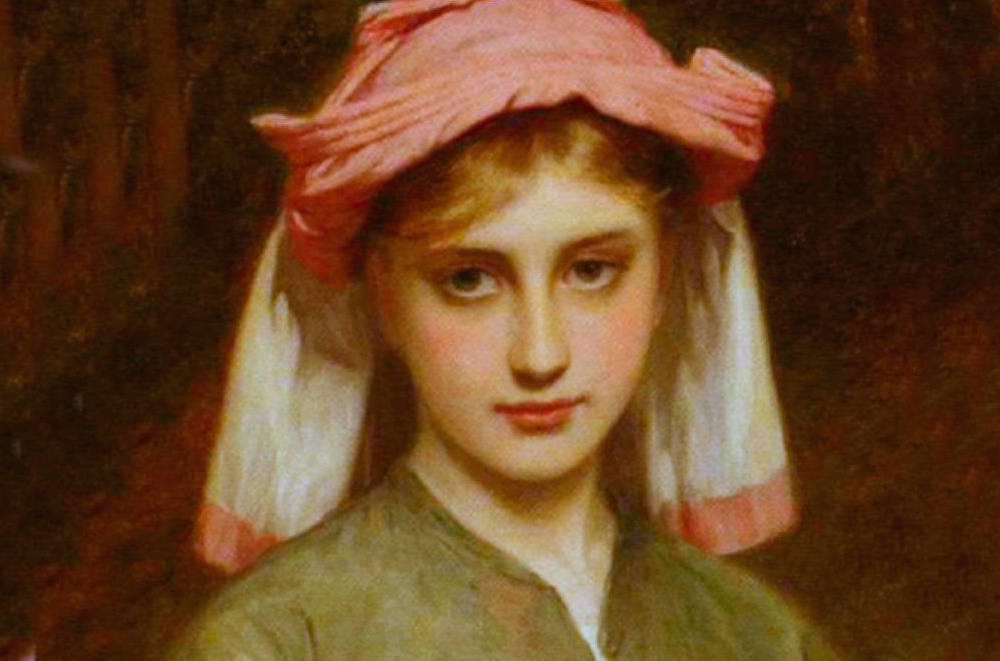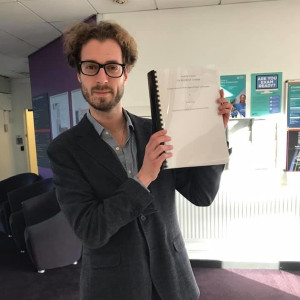Chapters
Usually, when we think of weddings, it's in romantic tones. Lots of flowing white, lots of flowers, pledging undying love... Today's extravaganzas bear no resemblance to the time when wives could be bartered for or bought. And although child brides and arranged marriages are still a practice in some parts of the world, it is seriously frowned upon.
But at one time, it was the norm. Until fairly recently, women didn't have a say in who they would marry. They would be given over and expected to cook, clean and care for their husbands and any babies that might come along. It didn't matter if they had barely entered their teens. Such is the picture Charlotte Mew paints. Let's read this shocking work to find out:
- whose story it tells
- what the story reveals
- how the story is told
- what we can take away from it

Who Is Charlotte Mew?
It would be no stretch at all to say that Ms Mew led a life full of pain. Born in Victorian London, she was one of seven children in a family led by an improvident father and gentlewoman mother. The clan's patriarch died when Charlotte, nicknamed Lotti was 17. He left nothing for the family to live on.
Three of Lotti's siblings died in childhood. Two more were committed to an institution because of mental illness. Lotti and her remaining sister vowed to never wed or have kids. Neither wanted to risk passing on the family madness, nor did they want to face the possibility of their children dying so young.
Artefacts seem to reveal that Ms Mew was not interested in men. Her writings indicate a passion for a lady certain publisher, whom she pursued to Paris only to be humiliated in rejection. Later in life, a pursuit of a famous female writer also ended in rejection. These romantic defeats, along with her disinterest in men may have shaped her writer's voice.
But, for all that, Lotti had quite the eye for beauty. She was a bit of a coquette, wearing fancy stockings and jewellery. She was quite generous, too. She left all of her best pieces to her friends and companions.
We might say that Ms Mew was a confounding character. Desirous of romance but fearful of what it entailed. Craving the trappings of attractiveness but going out of her way to make herself unattractive. Especially in later life, she dressed severely, in near-masculine lines.

What is The Farmer's Bride About?
With such a view of Lotti Mew's background, we can better understand the slightly derisive tone she writes The Farmer's Bride in. She writes not from the bride's perspective but from the farmer's. Like Ted Hughes and his poem, The Bayonet Charge, Lotti twists elements of her childhood to reveal them in a different context. To wit, the narrator bemoans her constant, seemingly cruel rejection of him.
The Farmer's bride is a rambling collection of musings in which a nineteenth-century farmer talks about how wedded life is going. He relates that he chose his wife three years before but, in all that time, had little to give her in the way of time and attention. She ran away. He apparently engaged an unspecified force to fetch her home, as denoted by 'we chased her' and 'we caught her'.
Noting the lowbrow quality of the narrative, we might suppose that 'we' in question might have been just 'he'. And maybe a couple of tracking dogs. Whoever was caught up in the chase, the end result is that the girl was locked up. From then, she does nothing but her work - well enough, but not much more. She refuses to engage with him in any way.
This work's last verse explains why they don't have any kids. The farmer expresses his frustration that a mere staircase separates them. He obsesses over her, dwelling on her eyes, her hair and her softness and youth. Perhaps to his credit, he does not climb the stairs.
The Farmer's Bride by Charlotte Mew
Three summers since I chose a maid,
Too young maybe - but more's to do
At harvest-time than bide and woo.
When us was wed she turned afraid
Of love and me and all things human
Like the shut of a winter's day
Her smile went out, and 'twasn't a woman
More like a little frightened fay
One night, in the Fall, she runned away.
'Out 'mong the sheep, her be,' they said,
Should properly have been abed;
But sure enough, she wasn't there
Lying awake with her wide brown stare.
So over seven-acre field and up-along across the down
We chased her, flying like a hare
Before our lanterns. To Church-Ton
All in a shiver and a scare
We caught her, fetched her home at last
And turned the key upon her, fast.
She does the work about the house
As well as most, but like a mouse
Happy enough to chat and play
With birds and rabbits and such as they
So long as men-folk keep away
'Not near, not near!' her eyes beseech
When one of us comes within reach.
The women say that beasts in stall
Look round like children at her call.
I've hardly heard her speak at all.
Shy as a leveret, swift as he,
Straight and slight as a young larch tree,
Sweet as the first wild violets, she,
To her wild self. But what to me?
The short days shorten and the oaks are brown,
The blue smoke rises to the low grey sky,
One lead in the still air falls slowly down,
A magpie's spotted feathers lie
On the black earth spread white with rime,
The berries redden up to Christmas-time.
What's Christmas-time without there be
Some other in the house than we!
She sleeps up on the attic there
Alone, poor maid.'Tis but a stair
Betwixt us. my God! the down,
The soft young down of her, the brown,
The brown of her - her eyes, her hair, her hair!

Breaking Down The Farmer's Bride
The farmer expresses his thoughts in various ways across six uneven stanzas. Throughout the verses, he refers to his farm and the animals, with which his wife seems to have a closer bond. He is given a slightly archaic and non-standard English to speak in, which implies a distinct lack of education.
In all of his musings, he never wonders what life might be like for his wife. The narrative is written strictly from his perspective. That he 'chose' his marriage implies there was no mutual agreement to the union. Sure, she might have been too young but he had more important things to do, like worry about his harvest and other farm doings. There is decidedly no Love's Philosophy type of romance between them.
This work makes it sound as though he treated her like women were often handled in those days. More of a work unit than a partner. It's quite possible that he never said much to her other than to order her about. He might have tried to physically dominate her, perhaps provoking this deep-seated terror.
The work definitely paints a portrait of a girl with deep emotional scars. Perhaps even a picture of the sort of relationship that must have been all too common in those days. And still common in some parts of the world.

Form
Although the length of the stanzas changes in the Farmer's Bride (9, 9, 10, 4, 8 and 5 lines), they all move to a fairly regular iambic tetrameter. (see below for definition) Mew mixes couplets (AABB) with alternate (ABAB) and arch rhyme (ABBA). She sometimes rhymes three of four lines together.
Side note: a tetrameter represents four strong beats in a line. An iamb represents two syllables with the stress on the second - like the words 'begin', 'exist' and 'belong'. In The Farmer's Bride, "Not near! Not near!" her eyes beseech is an example of iambic tetrameter.
This all creates the effect of a flowing, irregular rhythm. One that perhaps echoes life on a farm; now busy and then, not. Mew takes the liberty of interrupting the narrative flow with line breaks, punctuation and stanza limits, to great effect.
Lotti fits a complete sentence into a single line at the end of the first stanza. That makes the surprising statement even pithier; the girl's actions that much more urgent and dramatic. Her flight is described very simply. No explanation or detail is given. It is as puzzling to the farmer as it might be to the reader.
Mew uses enjambment very carefully throughout the work. For example, in the third stanza, the farmer tells us that his wife was 'happy enough to chat and play'. Read alone, that line might imply that the wife made a full mental recovery from the cruelty done to her.
But the thought continues in the following line: her 'chat and play' is not with her husband or kids but 'with birds and rabbits'. The next line down introduces more musings of her playful nature: it is conditional on the absence of threatening 'men-folk'. You might say that this wife is the very embodiment of Thomas Hardy's tragic heroine in Neutral Tones.
In the fourth stanza, the poet includes a pretty monorhyme quatrain that initially sounds like a dreamy lover's praise. Until Mew again inserts enjambment to modify the meaning of the phrases. She is 'shy', 'swift', 'straight and slight' and 'sweet', but only to 'her wild self' (and the farm animals). He then laments that she will not be all of those things with him. And still, he does not think to ask her why not.
Ms Mew employs this trick of shunting crucial information to the next line to maximum effect. At first, those wonderful attributes he marvels over seem to make him appreciative of his young wife. However, in the latter part of the sentence, Mew slams the door on that possibility by him whingeing that only he is being deprived of her goodness.
That passage seems to imply that he believes she should be more generous with him, first. The idea is implied throughout the work. We're still not certain the farmer has any affection for his wife. But we know he desires her, at least in some capacity. And we're beginning to see that he's very frustrated with her.

Language
Ms Mew gives the farmer a range of non-standard words and forms to speak with. Early on, he says 'us was wed'. He says 'she runned away' and uses 'up-along'. This use of language creates an impression of his character as a rural, uneducated speaker. Writers such as Tennyson and Browning used exactly this method to create character impressions in their dramatic monologues.
Clearly, the farm and the animals matter far more to this farmer than humans do. Extensive use of animal imagery throughout the work reinforces his character. He comes across as a person more accustomed to dealing with animals than people. He seems to give little thought to introspection, nor does he show any ability to deal with incomprehensible emotions.
In this work, the word 'fast' could have two meanings - 'firmly' and 'quickly'. When the farmer said "We caught her, fetched her home at last / And turned the key upon her, fast.", he likely meant 'firmly' rather than 'swiftly'. His having a slightly old-fashioned vocabulary, that verse probably means he closed the door properly or well.
However, the sense of acceleration in the reader's understanding of her situation helps reinforce the idea that the wife has become like a animal. Or a prisoner. A 'fay' is an archaic word for a fairy. It harks back to rural superstitions and stories of stolen wives, changelings and enchantments in the dusk. We're left with no clue whether he thinks of her as an enchanter who must be safeguarded or an untamed thing who must be contained.
'Maid', the shortened form of maiden, usually suggests 'virgin', as well. This may explain the wife's terror in any male's presence. Turning 'afraid | Of love' could well be her fear of the physical act of sex. This could be understandable if she was as young as many nineteenth-century rural brides were. Or it could imply that she has already witnessed or experienced sexual violence and is petrified of repeating the act.
Whichever side of the coin, her fear of her husband is unexplained. But we don't know anything about him. Is he old, ugly, vulgar, bad-smelling? Is his manner domineering, threatening, imposing? Told as it is, from his perspective, we cannot know. Given his lack of personal insight throughout the work, it would be unlikely he would admit to any negative qualities that might drive her away.
At the end of the poem, we learn that the wife is still a 'maid'. That suggests that their union remains unconsummated. At least, he seems not to have forced himself on her. But he obsesses over her as he lays beneath her sleeping place. Did she choose the attic to sleep in because instinct told her to claim the high ground? Did she, like Seamus Heaney's clan in Storm on the Island, intuit there would be no natural shelter?
Themes in The Farmer's Wife
Childhood trauma is a running theme both in this work and in Lotti's life. Losing so many siblings at an early age led her into a life of celibacy; she transferred her (probable) sexless status onto the maiden. However, she leaves open the exact nature of the bride's trauma, allowing the reader to insert their own experiences.
Emotional neglect features heavily. It appears the farmer is capable of caring for his animals well enough. But he doesn't seem to extend the same level of care to his wife. Indeed, it doesn't sound like he's solicitous of her in any way. We don't know if she was bought and paid for or merely bartered away by some other poor family who could no longer afford to feed her. In any case, he appears to contemplate her as a flawed investment rather than someone to build a partnership with.
In many ways, The Farmer's Bride is an observation piece, much like Robert Minhinnick's Yellow Palm. The farmer relates events almost dispassionately, as though he was observing rather than living them.

A Farmer's Wife Summary
Some may interpret this piece as a narrative of unrequited love. We get hints of some appreciation for the young wife towards the end of the work. But they are blotted by the louder tones of control, obsession and jealousy.
Mostly, the farmer discusses the relationship dispassionately, at best. He tells the story in his peculiar vernacular, proclaiming his lack of refinement with his very words. His wife doesn't so much as merit a quote. Instead, he superimposes his interpretations on her reactions to him.
Besides the strange language, Charlotte Mew uses many language techniques to control the narrative. She makes judicious use of enjambments and inserts iambic tetrameters at strategic narrative points. Her use of similes is rather disjointed. She describes flying 'like a hare', perhaps to drive home just how uncultured the farmer was.
She also makes slight use of alliteration. Note the series of S-words in the shortest verse (the 4th one). The repeated use of sibilants makes that short stanza feel like a sigh. As though he were describing her attributes with wistful longing rather than clinical detachment.
Charlotte Mew published The Farmer's Bride in 1912, fairly late in her career. We don't know when she wrote it. The girl's rejection of her husband perhaps mirrors the humiliating romantic defeats she suffered in her own life. We know that Lotti volunteered as a social worker. Maybe the hinted-at sexual violence in this work pays tribute to the stories she heard while working in that capacity.
Like Carol Ann Duffy writes in Medusa, "My bride's breath soured, stank..." The farmer's wife also had soured breath. It gave her a taste so putrid she could not bear male companionship in any form. It might have come from having no say in her life or doings. Lotti drove that point home by narrating her life with her husband's uncultured words. In a sense, she took away the traumatised girl's voice.
For extra support with poetry analysis, why not book a lesson with one of our experienced GCSE English tutors? At Superprof, you can browse through a selection of great tutors to find the right one for you.
















